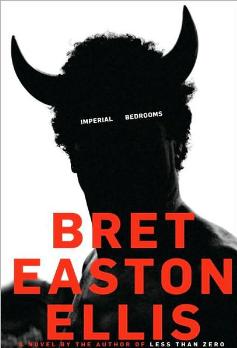
The Bret Easton Ellis Podcast May Just Save Us All
You are likely familiar with Bret Easton Ellis for his acclaimed novels and films. He has been a part of the American consciousness since the 1980s, adding his provocative thoughts and challenging art to our public discourse. For the past couple years, The author has produced The Bret Easton Ellis Podcast for Podcast One, chatting with a delightfully wide range of artists, including Kanye West, James Van Der Beek, Kevin Smith and Mark Danielewski. I would probably enjoy the podcast if Mr. Ellis merely asked questions that help his guest illuminate their work, but the episodes do far more important work and writers should pay a lot more attention to what Mr. Ellis is doing.
Quite simply, Mr. Ellis is trying to defend us all against the hypocritical, talentless scolds who have decided that they get to bully artists on the basis of hurt feelings, real or hypothetical. I have dealt with this disturbing phenomenon myself with respect to the Trevor Noah brouhaha-a conflagration long forgotten by the offenders-and I couldn’t stop myself from telling you why I don’t care about the “outrage du jour.” Mr. Ellis’s voice, words and ideas, however, have far more reach than mine do and are far more powerful.
I strongly urge you to simply download the Podcast One app and listen to the BEE Podcast for yourself.
But since I have your attention, I’ll tell you more about why Mr. Ellis’s work is so important and so great. Mr. Ellis begins each episode with a brief commentary that serves as a jumping-off point for the interview he is about to do. The introductions are well-written, of course, but are also filled with interesting and meaningful anecdotes that frame the arguments that begin Mr. Ellis’s interviews. In the Anthony Jeselnik episode (my favorite), Mr. Ellis describes a couple instances from his past in which those close to him have taken offense at art. (In this case, the Bangles’ “Manic Monday” and one of Mr. Ellis’s novels.) From there, Mr. Ellis and Mr. Jeselnik engage in an entertaining discussion that is of great value for all creative people.
While Mr. Ellis touches on a great many issues, the podcast has increasingly addressed the problems caused by the hypocritical moral scolds who seek to straitjacket artists with their simultaneously rigid, amorphous and arbitrary dogmas. The host and Mr. Jeselnik glorify the need for artists to resist the troubling restriction of discourse increasingly urged by the hypocritical moral scolds and the perpetually offended. (And those who are perpetually offended by proxy.)
Why are the talentless hypocritical moral scolds harmful? Mr. Ellis drives home an important point. Their attempts at inclusivity and empathy feature neither quality:
“I remember the need I felt to view experiences, whether it was by writers or filmmakers or poets or musicians or comedians, by artists who had a different viewpoint in mind. I didn’t want what our culture is now demanding: safety and niceness and respectability. Inclusivity. I wanted to be confronted by things. I wanted to be challenged. I didn’t want to live in the safety of my own little snow globe and only be reassured by all the things I liked. To only be surrounded by things that coddled me and made me comfortable. I wanted to stand in other people’s shoes and see how they saw the world, especially if it was so far out of my comfort zone. I craved being shaken. I loved ambiguity. I wanted my mind changed. Getting upset and being damaged by art, being wiped out by the cruelty of someone’s vision of the world, whether it was Shakespeare or Scorsese, had a profound effect on me. It gave me empathy. It helped me realize that there was another world other than mine that existed with other viewpoints, with other opinions, and this aided me in becoming an adult. It moved me away from the narcissism of childhood.”
Bret Easton Ellis is trying to save us from ourselves. Far too many artists have expressed the desire for speech and thought to be regulated. People who make their living and drive the national conversation with rhetoric are begging the government to eliminate rhetoric they don’t like. Words-the very lifeblood of a writer-are being redefined and used as bludgeons to justify the homogenization of artistic discourse.
On his podcast, Mr. Ellis decries the neo-Puritanism of the regressive left critics who complained about the sensationalist violence in Eli Roth’s films.
He decries the flak he and Quentin Tarantino received for the dubious blasphemy of suggesting that Selma wasn’t an aesthetic success.
Writers are duty-bound to stand at the vanguard of protecting the free flow of ideas, not that of stigmatizing words and criminalizing thoughts. The Bret Easton Ellis Podcast glorifies the creation of art and rhetorically eviscerates the talentless hypocritical moral scolds who want to turn storytelling into a Two Minutes Hate session in a re-education camp.
If you found my analysis useful or enjoyed my writing style, would you consider checking out Great Writers Steal Press, where I have published some eBooks of the fiction and nonfiction variety? Just head over to books.greatwriterssteal.com, where reading is not homework!
